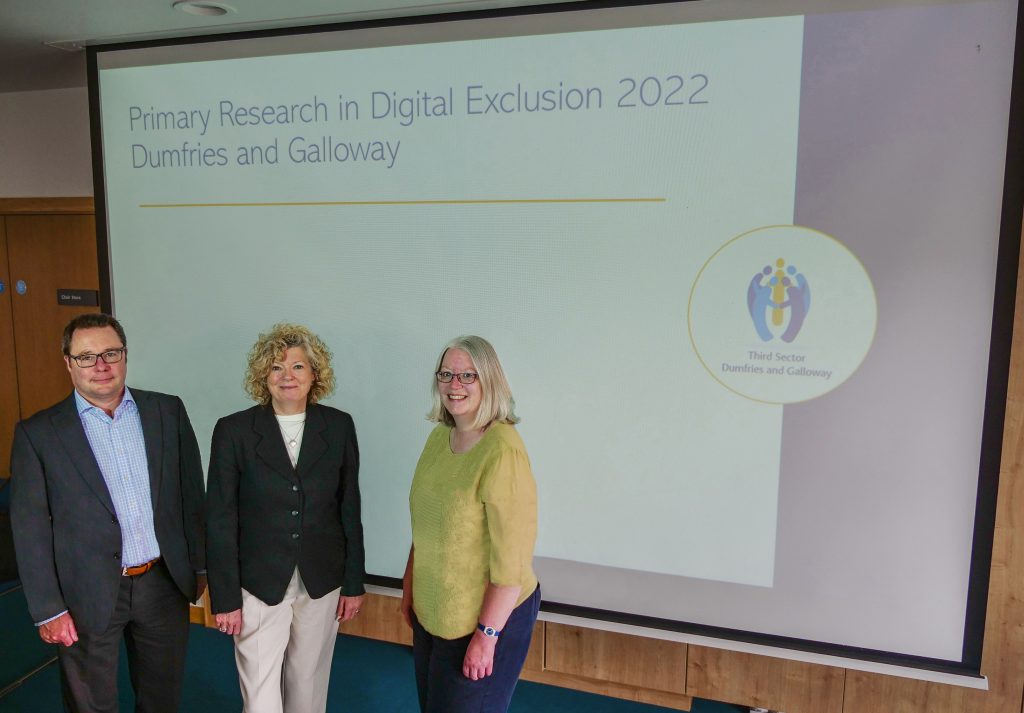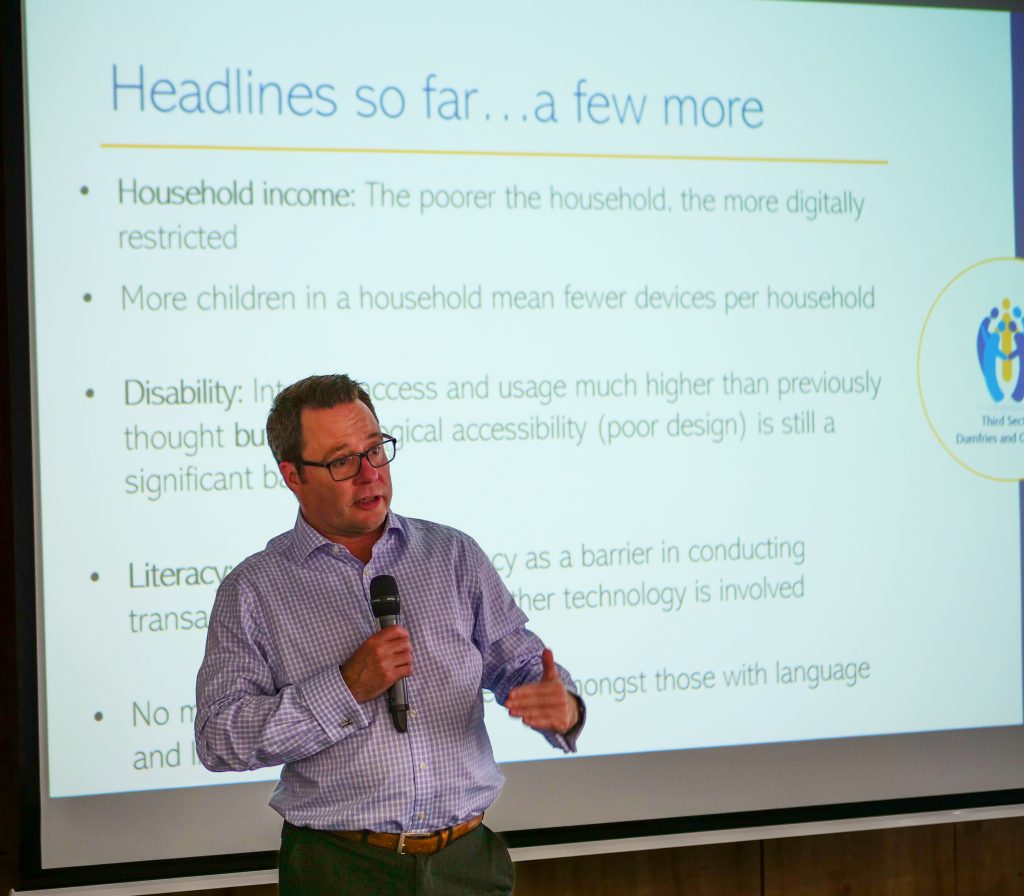
Motivation is now one of the leading reasons for digital exclusion across Dumfries and Galloway.
The finding was presented in the interim results of a nationally important digital exclusion research project for the region.
Charities and community groups helped feed in almost 900 responses from individuals to the project, which is being led by Third Sector Dumfries and Galloway (TSDG).
An update has been presented to key policy makers ahead of the report’s full launch in September.
The research discovered that only two per cent of those that took part have no access to the internet. Even less – just over one per cent – believed they needed further skills to do basic digital tasks.

But, nearly a third of people across all groups prefer not to use online transactions and value more traditional methods, such as face-to-face.
Although overall access was no longer the main issue, other more specific hurdles were highlighted such as: cost, connectivity, and speed; frequency of access; and the age and quality of the device.
“Digital exclusion is complex and affects people of all ages and backgrounds and this research is providing some surprises.
“The final report and its recommendations will have implications for how we approach the subject in the third sector and we hope that our colleagues in the public sector will also make full use of the findings.”
Norma Austin Hart, TSDG’s Chief Operating Officer
The interim report is based on analysis of about half the data categories with the rest covered in the final report.
TSDG led on several digital exclusion projects during Covid lockdowns and launched the new research project at the start of this year.
It is hoped that the project, which has been gathering national interest, will help towards delivering an overall strategic approach across all agencies.
Picture: Stuart Harrison, Third Sector Dumfries and Galloway Associate; Norma Austin Hart, TSDG Chief Executive Officer; and Natalie Anderson, Project Manager.
